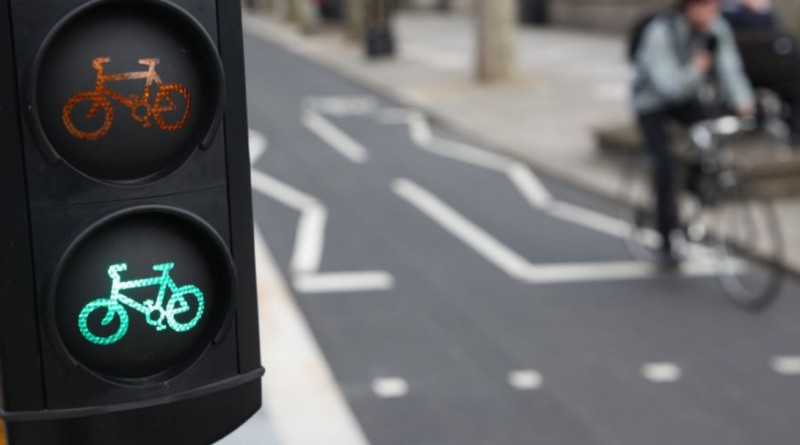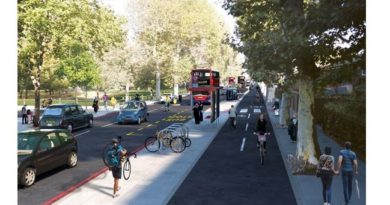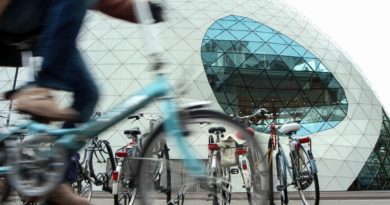55% of people in ethnic minority groups desire to cycle, says report
A new report from Sustrans has found that 55% of people from ethnic minority groups who currently do not cycle would like to start cycling.
Cycling for Everyone is the new research banner, under which it is discussed how ignoring marginalised groups has only come at the expense of the cycle trade.
While cycling has proved its worth during the pandemic, as a safe and socially distanced way for people to get exercise and as a means to travel to work and for other essential journeys, 74% of people from ethnic minority groups living in cities and towns do not currently cycle.
Despite low participation levels, the report found that more than half of people from ethnic minority groups who do not currently cycle would like to start. This compares to 37% of White people.
This report further found that the transport sector is not doing enough to address the barriers people from ethnic minority groups and other disadvantaged communities face.
Tackling safety, through protected cycle lanes and low-traffic neighbourhoods, is critical. However, the report highlights a lack of confidence, security, as well as the financial outlay of purchasing a cycle as being some of the barriers that are more likely to prevent those from ethnic minority groups and other disadvantaged communities from cycling:
- A third (33%) of people from ethnic minority groups were not confident in their cycling skills
- 25% of people from ethnic minority groups stated that a lack of facilities at home or work (e.g. secure cycle storage) was a barrier to cycling
- 20% of people from ethnic minority groups stated the cost of a suitable cycle stopped them from cycling.
In order to address these barriers, the report highlights recommendations which aim to help to work towards reducing inequalities within cycling.
While challenges exist between different demographic groups, including between different ethnic minority groups, the report finds many of the barriers to increasing diversity in cycling are shared.
Key recommendations highlighted in the report include an extension of the UK Government’s Cycle to Work Scheme to include those in low-income jobs, as well as support to those not in employment, to ensure that cost is not a barrier for anyone looking to purchase a cycle.
The report also urges the need for improvements in secure cycle storage in residential areas, and particularly for flats and high-rise buildings where storing a cycle inside may prove challenging.
To improve confidence free cycle training needs to be provided to all children and adults, and cycling infrastructure expanded to reach areas where transport options are poor and high traffic levels exist.
How does the cycle trade feel about it?
The cycling industry has, in recent years, come to terms with its image problem; notably that we may well have been targeting the same, often white male, cyclists with marketing.
Cycling Industry News’ own annual Retail Channel Study has some interesting findings on this subject, most notably that 67% believed marketing spend should be directed towards non cyclists.
Cycling’s portrayal in the press ranked second, only behind lack of safe infrastructure (which may now finally change), as a main concern running against growing the numbers of people cycling; 48% deemed the stereotypical imagery and presentation as a problem for the trade.
In this CI.N panel discussion, five women from the cycling industry shared their thoughts on the bike industry’s efforts to overhaul its marketing approach in order to attract new customers.
Daisy Narayanan, Director of Urbanism at Sustrans said: “This report brings to light that for too long, the needs of so many have been ignored within cycle planning and development.
“In order to work towards real change and make cycling more inclusive, we call upon the industry, local authorities and central government to welcome and support all people to cycle. It is only when we move away from exclusively designing towns and cities for those who already have access to move through spaces with ease, can we really create equitable places to live and work”.
Susan Claris, Global Active Travel Leader, Arup said: “The health, wellbeing and social benefits of cycling in our towns and cities are clear. But these benefits are not equally felt by everyone, and we need to do more to ensure that cycling truly is accessible for all.
“This guidance supports a move away from designing cities for people who already cycle, or have power and privilege, and instead to use our collective skills, expertise and ambition as a sector to start designing cycling for everyone.”



